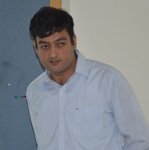Date: 3-2-2016
Description: Harsh Taneja, Assistant Professor, Missouri School of Journalism delivered a talk titled “Identifying visible and invisible structures in explaining global patterns of Web use” on 3rd February 2016.
On digital platforms such as the WWW, people are generally free to choose their preferred content. Technologies and powerful institutions enable (and disable) these global audience flows. How relevant then are cultural factors such as language and geography in determining global patterns of media consumption? The talk empirically investigated the role of each of these factors in audience formation on the WWW through a bunch of related studies. The first analysis focused on the extent to which hyperlinks explain audience traffic between the top 1000 websites globally. The second investigated the impact of China’s Great Firewall on its web users’ behavior. The third investigated evolution in global WWW usage patterns over three historical time points. All these analyses develop a network analytic “user- centric” approach to mapping the WWW. As Web use deepens in the global South, the findings emphasize a shift in perspective in imagining the WWW.
Harsh Taneja is an assistant professor of communication at the Missouri School of Journalism. His scholarly interests lie in audience behavior, audience measurement and related implications for media institutions. This research program draws on his doctoral training in the Media, Technology and Society program at Northwestern University as well as his audience research professional experience in transnational media and advertising corporations. Empirically, his projects cover a variety of contexts: Ongoing projects focus on global Internet use, crossplatform digital news use in the US,news use during the general elections in India and Bollywood’s overseas box office.

